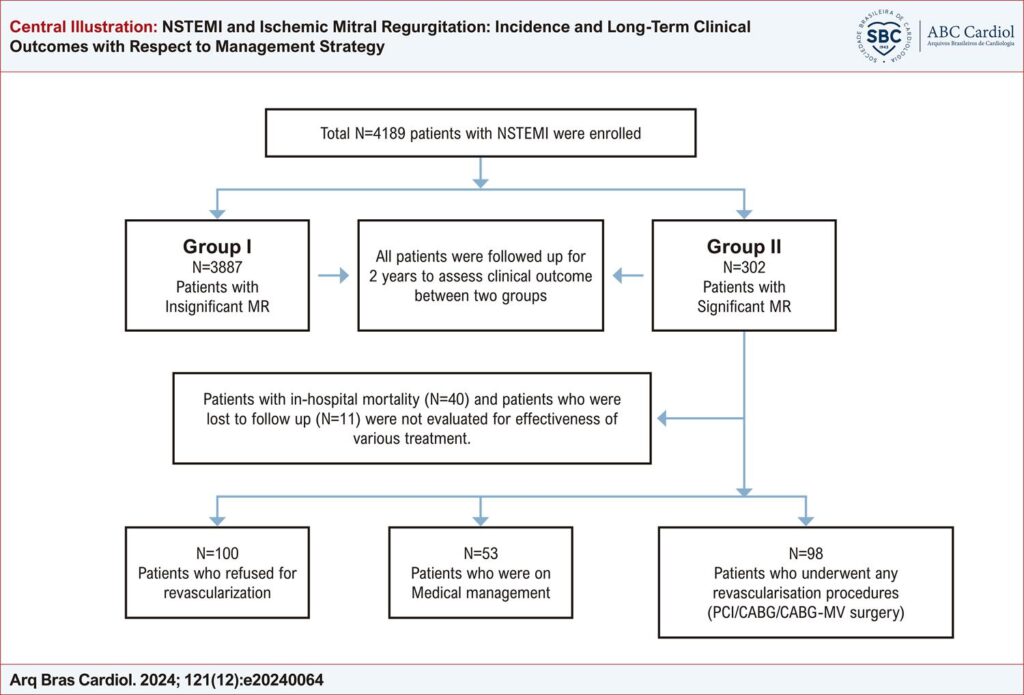Arq. Bras. Cardiol. 2024; 121(12): e20240064
NSTEMI and Ischemic Mitral Regurgitation: Incidence and Long-Term Clinical Outcomes with Respect to Management Strategy
This Original Article is referred by the Short Editorial "Mitral Regurgitation after Acute Myocardial Infarction: A Multi-Faceted Condition".
Introduction
Non-ST elevation myocardial infarction (NSTEMI), characterized by myocardial damage without the classic ST-segment elevation, poses distinct challenges in its diagnosis and management. The aftermath of NSTEMI extends beyond the immediate ischemic event, often contributing to a cascade of cardiovascular complications. The prevalence of MR in this specific cohort warrants meticulous examination, as it introduces a layer of complexity that can influence the trajectory of recovery and long-term prognosis.
The development of Mitral regurgitation (MR) in patients with NSTEMI is multifactorial, involving complex interactions between various pathological processes. Development of MR in the context of NSTEMI could be due to pathologies like ischemic papillary muscle dysfunction, papillary muscle rupture, chordal rupture, or chordal stretching secondary to left ventricular dysfunction. The presence of hemodynamically significant MR with NSTEMI can lead to pulmonary venous hypertension, increased risk of heart failure, left ventricular dysfunction, increased risk of arrhythmias, worsening of ischemic events, and complications post-revascularization.The presence of Mitral Regurgitation in patients of NSTEMI leads to additional challenges to the long-term prognosis, affecting cardiac function, heart failure risk, and overall cardiovascular health. Early identification and management of MR in these patients can significantly impact long-term outcomes.
[…]
463

